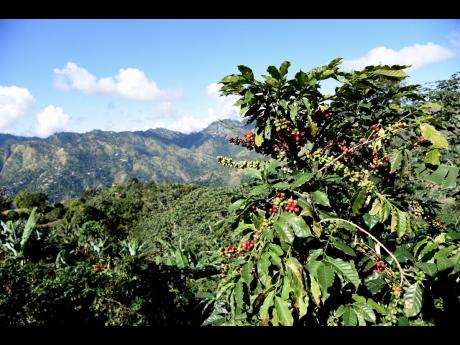JACRA doubles down - Mandates 20% more local beans in Salada instant coffee
Coffee producer Salada Foods Jamaica Limited is again being pressured by the Jamaica Agricultural Commodities Regulatory Authority (JACRA) to add another 20 per cent local coffee to its blended Mountain Peak brand of instant coffee, for which the regulator has set a date of September 1.
It means that Salada, which now uses 10 per cent local coffee and imports the rest, would have to increase the blend to 30 per cent local beans.
It is the second effort by the regulator to impose the quota on Salada, the first time one and a half years ago, but the coffee processor has been resistant for logistics and commercial reasons.
Salada says that changing the blend would also change the taste profile of the Jamaica Mountain Peak brand that its customer base expects.
The quota rule that JACRA is trying to implement was set by the Ministry of Commerce, Agriculture and Fisheries (MICAF) to ensure markets for locally produced beans. It stipulates that traders who buy beans from abroad must include at least 20 per cent of local coffee in their formulations for processing and resale.
At the time, Salada was relentless in its opposition, saying, among other things, that the quota rule would mean a reformulation of its instant coffee powder, which it spent years perfecting. It was also concerned about the availability of inputs, saying that Jamaican coffee, which is a top luxury product on international markets, is often in short supply.
But the company, which trades publicly on the stock market and is answerable to shareholders, was most vocal about the deterioration in profitability the added local content would bring on the company from expected increases in production costs.
The coffee producer imports green beans as raw material at global market price between US$1.5 and US$2 per pound, plus a cess on the imported beans of US$1.41 per kg or US$0.705 per pound.
Comparatively, Blue Mountain Coffee sold domestically costs about two to three times that at around US$8 per pound.
Salada is as resistant now to the change, saying in a market filing that it was seeking dialogue with MICAF and JACRA to explain its implications.
It will “materially change the taste profile” of the Mountain Peak Coffee brand, “which currently enjoys over 50 per cent market share of the instant coffee sector”, said Salada.
The company also said that it is unsure about how receptive consumers would be to the changes.
The move towards the increased quota comes amid challenges for coffee growers, with farmers facing a 90 per cent reduction in sales and unsold inventory of some 600,000 pounds of beans. It suggests that the authorities, who have been focused on opening up or safeguarding markets for the agricultural sector during the disruptions brought on by the spread of COVID-19, may not be receptive to Salada’s case.
General manager of the company Diana Blake Bennett declined to comment on how confident they were of a receptive ear. The Financial Gleaner was also unable to ascertain whether the company had been granted a meeting and when it would be held.
The situation is complicated by prevailing market conditions, which see the very association in which Salada holds membership – the Jamaica Coffee Exporters Association (JCEA) – pushing for a buyer for the unsold coffee inventory without success.
As the sole instant coffee processor in Jamaica, Salada was reportedly being looked to as their best hope to offload the coffee that would normally be processed for clientele in the hotel and restaurant trades – two of the sectors that have faltered under the coronavirus.
In addition to the 600,000 pounds of coffee left over from the 2019-20 crop, the new season, which began on August 1, is projected to yield 220,000 boxes of Jamaica Blue Mountain and 25,000 boxes of High Mountain coffee, reflecting a 15 per cent increase in production over the previous crop.
Top roasters had signalled that the commodities regulator and the JCEA had hoped to strike a deal with Salada for 528,000 pounds of the coffee inventory at US$3 for the coffee in inventory. Well-placed sources, however, said that Salada – which itself was already holding 72,000 pounds of the unused 600,000-pound inventory due to a slowdown in its own coffee sales – was not prepared to buy the beans at a price higher than US$2 per pound.
To date, there has been no word on whether the parties eventually came to an accommodation.
In June, JCEA chairman Norman Grant said that the group was looking to offload at least 10 per cent of the inventory of beans on the export market under a “sale by sample”.

